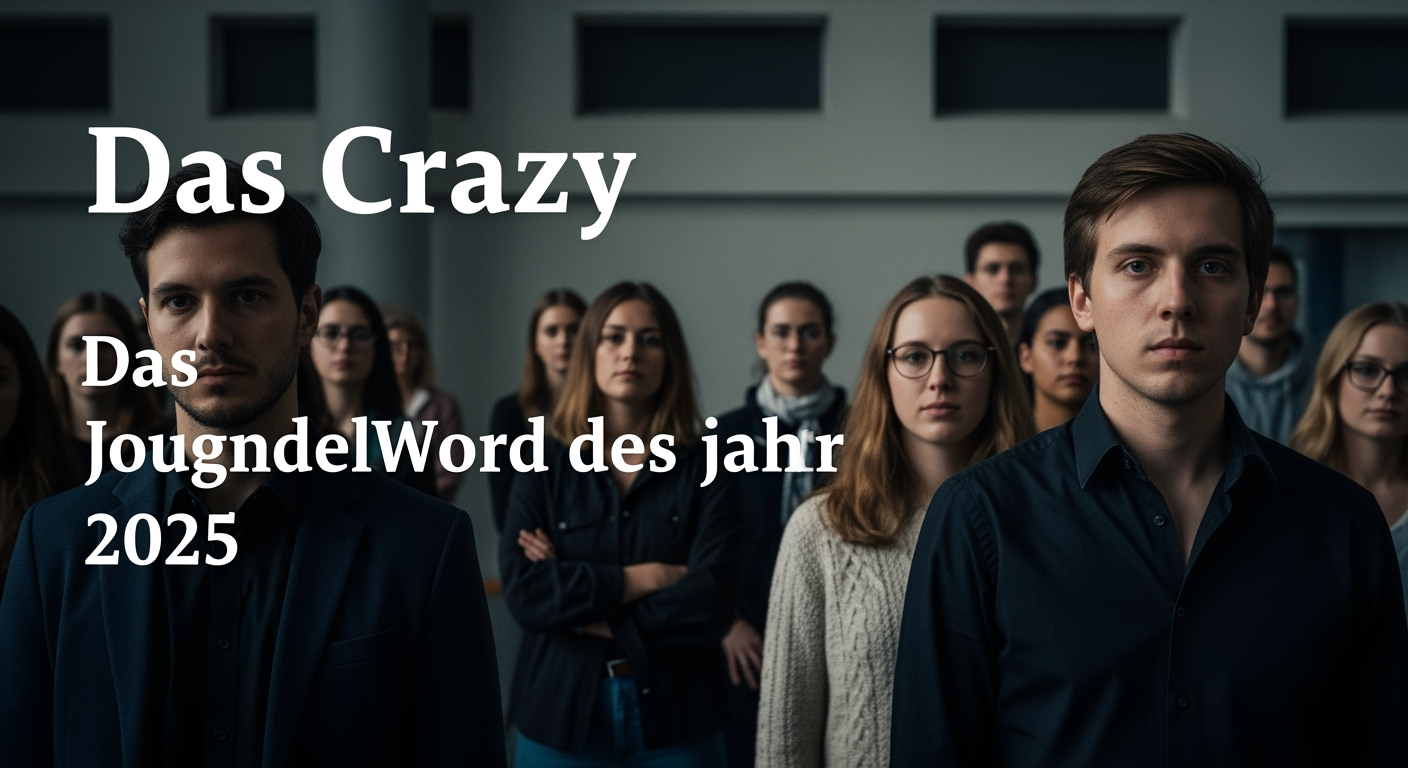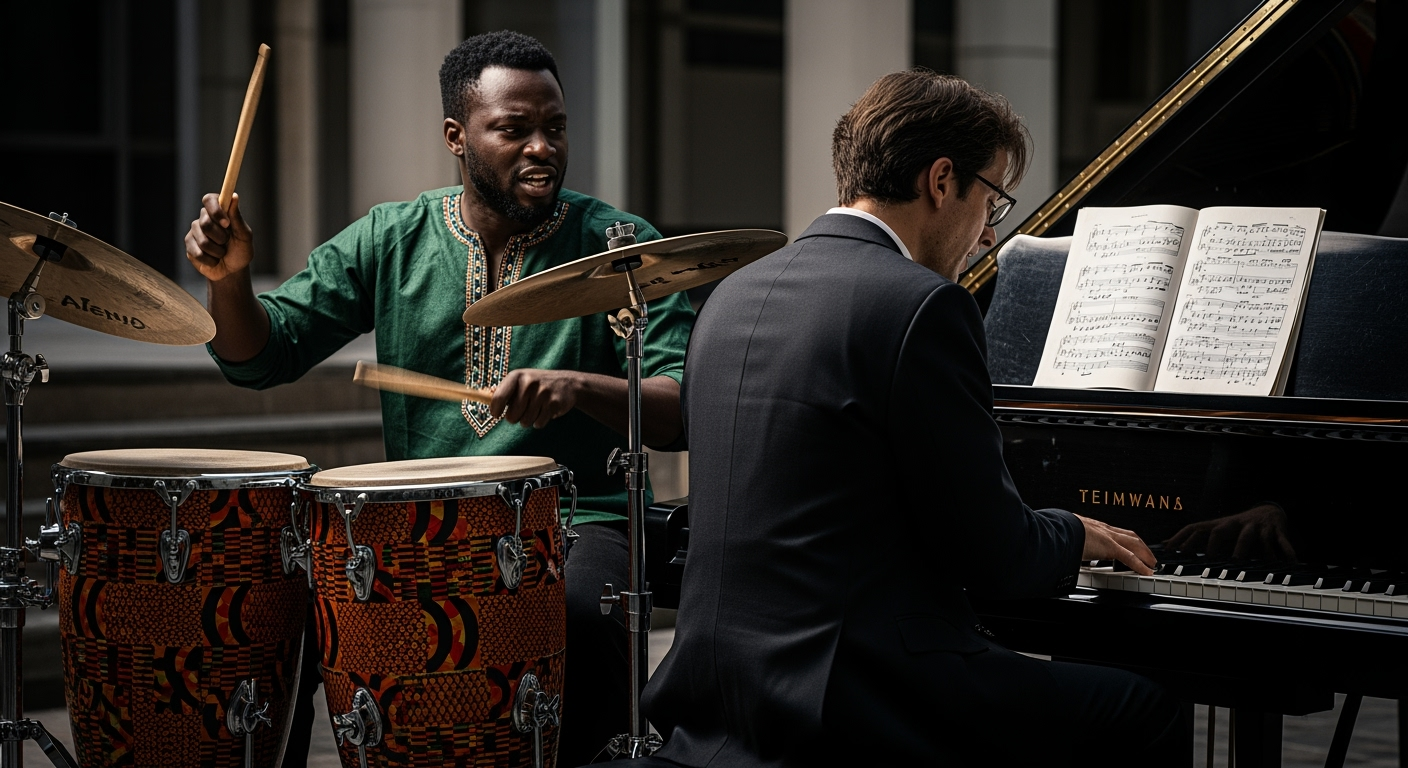Related Articles

Daring Daylight Heist Shakes Louvre, Priceless Jewels Vanish

"Das crazy" Crowned German Youth Word of the Year 2025, Reflecting English Influence and Linguistic Nuance





BONN, Germany – In an ambitious and resonant celebration of cross-cultural dialogue, the 2025 Campus Project orchestrated a groundbreaking fusion of Ludwig van Beethoven's classical masterpieces with the vibrant, politically charged rhythms of Afrobeat. This unique collaboration, spearheaded by Beethovenfest Bonn, the German Youth Orchestra, and Deutsche Welle, culminated in a series of electrifying concerts in September that transcended geographical and musical boundaries, fostering a profound exchange between young German and Nigerian musicians.
The project, a cornerstone of Beethovenfest's commitment to international exchange for over two decades, chose Nigeria as its focal point for 2025, marking a significant journey into the heart of West African musical innovation. This initiative sought to not only blend disparate musical traditions but also to confront historical narratives and build bridges of understanding through shared artistic expression. The resulting performances, a testament to the power of music to unite, left audiences and participants alike with a renewed appreciation for global harmony.
The journey towards this extraordinary musical encounter began in March 2025, when a contingent of six young German musicians traveled to Lagos, Nigeria, for an intensive week of rehearsals and cultural immersion. For many of the German participants, this marked their inaugural visit to the African continent, an experience described by 20-year-old German clarinetist Luis McCall as "a great opportunity to learn new things and meet new people from other cultures." Their Nigerian counterparts, including violinist Mary Ifeoluwa from the Muson Centre in Lagos, brought their own rich musical heritage and individual stories to the collaboration, highlighting the personal sacrifices and dedication often required to pursue music in different cultural contexts.
Under the artistic direction of the renowned Afrobeat band BANTU, known for its "music with a message," the young musicians embarked on a creative exploration, developing original compositions that seamlessly wove together diverse stylistic elements. Ade Bantu, the band leader, guided the ensemble in crafting a program that integrated traditional Yoruba chants, German folk songs, contemporary Afrobeat, and classical Western compositions. This initial phase in Lagos laid the groundwork for a truly "transtraditional" experience, challenging preconceived notions of musical genres and cultural identity.
The Campus Project's core mission extends beyond musical performance, aiming to cultivate genuine cultural exchange and foster friendships among young artists. The immersive residency in Lagos provided a unique environment for the German and Nigerian musicians to connect, share their musical languages, and understand each other's cultural perspectives. This direct engagement served as a powerful antidote to historical divides, particularly in the context of Africa's colonial past. The project explicitly aimed for "an exchange on equal terms, which transcends borders and overcomes differences," actively challenging "cultural superiority fantasies on the part of the colonial powers."
The collaboration brought together members of the National Youth Orchestra of Germany with young Nigerian musicians, alongside the experienced members of BANTU. Figures like Isaiah Odeyale, serving as musical director and trombonist, and Cassie Kinoshi, contributing composition and saxophone, were instrumental in guiding the fusion process. This blend of emerging talent and established artists created a dynamic learning environment, where classical techniques met improvisational freedom, and traditional melodies intertwined with modern sonic landscapes.
The culmination of this intensive collaborative period was showcased in a series of highly anticipated concerts in September 2025, held in Bonn and Berlin. The program was a bold tapestry of sounds, where the gravitas of Beethoven encountered the infectious energy of Afrobeat. Audiences witnessed unique arrangements of Ludwig van Beethoven’s "Egmont" overture, reimagined alongside powerful protest songs from BANTU, such as "Ten Times Backwards" and "We No Go Gree."
The concerts also featured traditional Yoruba and German songs, highlighting the universality of folk music and its capacity to connect diverse communities. Significant works by Nigerian composers, including Olufęlá Şowándé’s "Nostalgia" and "Akinla" from his "African Suite," were performed, adding another layer of rich cultural representation. The program even included Fela Kuti's iconic "Colonial Mentality," underscoring the project's willingness to address complex historical and political themes through music. A world premiere of "odò (river)" by Nigerian-British composer Cassie Kinoshi further cemented the project's dedication to new, transcultural artistic creations. This carefully curated repertoire demonstrated how different stylistic elements could not only coexist but also enrich each other, transforming the familiar into something entirely new.
The 2025 Campus Project extended beyond mere musical performance; it served as a profound statement on cultural diplomacy and the enduring power of art to foster understanding and challenge existing paradigms. By bringing together musicians from different continents and traditions, the project facilitated an invaluable intercultural dialogue. The BANTU band, with its ethos of "music with a message," ensured that the performances were not just aesthetically pleasing but also carried clear political and social relevance, integrating themes pertinent to contemporary Nigerian society.
The project underscored the idea that music, much like language, is a living, evolving entity, capable of absorbing and reflecting diverse human experiences. The collaboration implicitly addressed the legacy of colonialism by demonstrating a mutual respect for differing cultural expressions, rather than promoting one as superior. It showcased how classical music, often perceived as a Western domain, can be revitalized and recontextualized through engagement with other global traditions, and how African music continues to shape global pop culture. The personal narratives of the young musicians, particularly Mary Ifeoluwa's journey in pursuing classical music in Nigeria despite societal pressures, added a compelling human interest element, highlighting the universal struggles and triumphs inherent in artistic endeavors.
The 2025 Campus Project ultimately delivered on its promise to create a "transtraditional" experience, proving that musical boundaries are fluid and permeable. Through intensive rehearsals, collaborative composition, and powerful performances, young German and Nigerian artists forged connections that extended far beyond the stage. This initiative stands as a vibrant example of how cultural exchange can promote dialogue, dismantle historical barriers, and ignite new creative possibilities, ensuring that music remains a potent force for unity and understanding in an increasingly interconnected world. The echoes of Afrobeat fused with Beethoven will undoubtedly resonate, inspiring future generations of musicians and cultural ambassadors to continue this vital work.